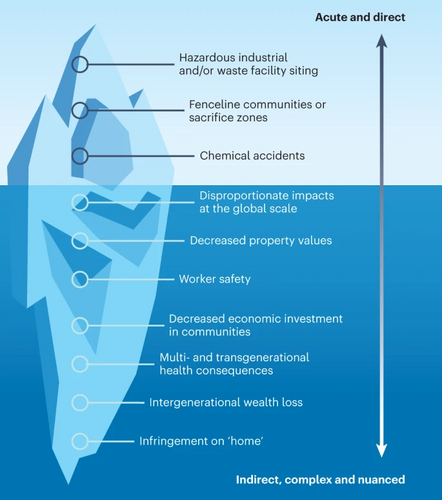
Scholars at the Center for Green Chemistry and Green Engineering have published a foundational new paper in Nature Sustainability, “Green Chemistry as Just Chemistry,” (Mary Kate M. Lane, Holly E. Rudel, Jaye A. Wilson, Hanno C. Erythropel, Andreas Backhaus, Elise B. Gilcher, Momoko Ishii, Cheldina F. Jean, Fang Lin, Tobias D. Muellers, Tong Wang, Gerald Torres, Dorceta E. Taylor, Paul T. Anastas, and Julie B. Zimmerman) which illustrates the need to adopt green chemistry to achieve environmental justice. Environmental justice—“the fair treatment and meaningful involvement of all people regardless of race, color, national origin, or income, with respect to the development, implementation, and enforcement of environmental laws, regulations, and policies” (https://www.epa.gov/environmentaljustice)—looks to see that all communities, especially marginalized and historically overburdened communities, do not bear the disproportionate brunt of environmental harm. The status quo practice of chemistry has historically ensured environmental injustice, whether through the unfair and burdensome siting of chemical manufacturing and waste disposal near to poor and marginalized communities, and/or the compounding impacts on health, wealth, and well-being in certain communities. Further, the status quo has produced a flawed, entrenched chemical paradigm that has created waste, harmful chemicals, dangers to humans and the environment, and a non-circular economy based on increasing consumption and disposal.
Why do these conditions exist? Why are there whole communities poisoned by toxic petrochemical plants or the multigenerational legacies of waste disposal? In “Green Chemistry is Just Chemistry,” the answer is that the ways we have historically done conventional chemistry, whether by ignorance or negligence, have led to these unjust outcomes, treating them as acceptable and allowing the harms to exist and be perpetuated. But there is an answer. These injustices are not acceptable under green chemistry, which designs out the conditions of toxicity and waste from the start. As the paper states, to ensure an environmentally just world requires green chemistry as one important part of the effort. Environmental justice can be realized by the adoption of green chemistry in tandem with other systems thinking remedies, and green chemistry practices can counter many of the injustices associated with traditional chemistry practices.
Read the article here: https://doi.org/10.1038/s41893-022-01050-z
